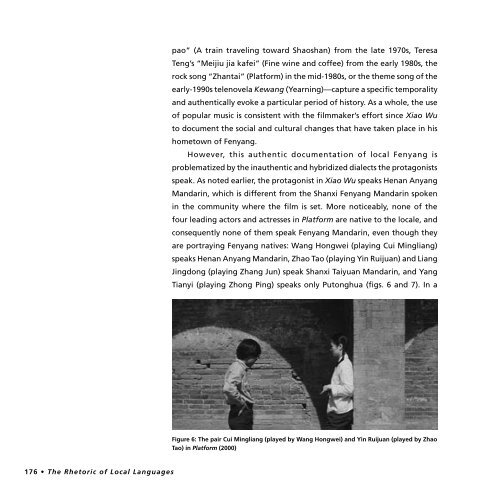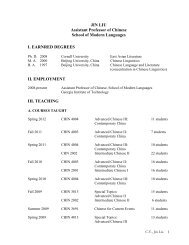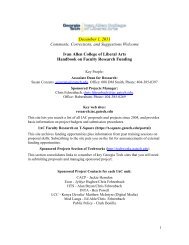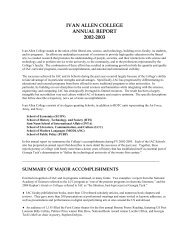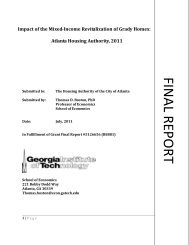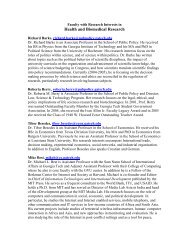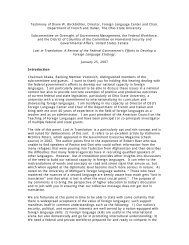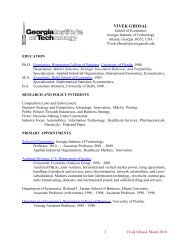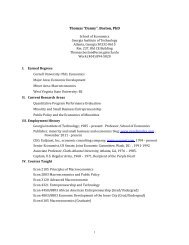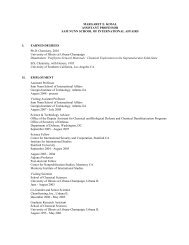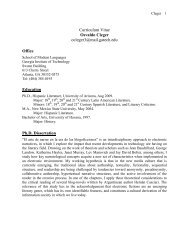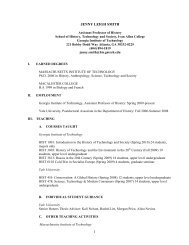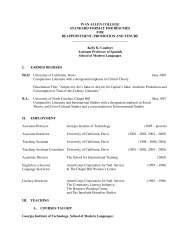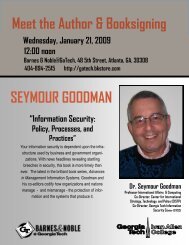Read this paper
Read this paper
Read this paper
Create successful ePaper yourself
Turn your PDF publications into a flip-book with our unique Google optimized e-Paper software.
pao” (A train traveling toward Shaoshan) from the late 1970s, Teresa<br />
Teng’s “Meijiu jia kafei” (Fine wine and coffee) from the early 1980s, the<br />
rock song “Zhantai” (Platform) in the mid-1980s, or the theme song of the<br />
early-1990s telenovela Kewang (Yearning)—capture a specific temporality<br />
and authentically evoke a particular period of history. As a whole, the use<br />
of popular music is consistent with the filmmaker’s effort since Xiao Wu<br />
to document the social and cultural changes that have taken place in his<br />
hometown of Fenyang.<br />
However, <strong>this</strong> authentic documentation of local Fenyang is<br />
problematized by the inauthentic and hybridized dialects the protagonists<br />
speak. As noted earlier, the protagonist in Xiao Wu speaks Henan Anyang<br />
Mandarin, which is different from the Shanxi Fenyang Mandarin spoken<br />
in the community where the film is set. More noticeably, none of the<br />
four leading actors and actresses in Platform are native to the locale, and<br />
consequently none of them speak Fenyang Mandarin, even though they<br />
are portraying Fenyang natives: Wang Hongwei (playing Cui Mingliang)<br />
speaks Henan Anyang Mandarin, Zhao Tao (playing Yin Ruijuan) and Liang<br />
Jingdong (playing Zhang Jun) speak Shanxi Taiyuan Mandarin, and Yang<br />
Tianyi (playing Zhong Ping) speaks only Putonghua (figs. 6 and 7). In a<br />
Figure 6: The pair Cui Mingliang (played by Wang Hongwei) and Yin Ruijuan (played by Zhao<br />
Tao) in Platform (2000)<br />
176 • The Rhetoric of Local Languages<br />
MCLC 18.2.indd 176<br />
12/20/06 2:01:36 PM


